Phonological awareness Elementary Phonics Worksheets for 3-Year-Olds
7 filtered results
-
From - To
Boost your child’s early literacy with our engaging Phonological Awareness Worksheets designed specifically for 3-year-olds! These interactive activities help young learners develop critical skills like rhyming, syllable segmentation, and sound differentiation. Each worksheet is colorful and fun, designed to captivate your child’s attention while fostering a strong foundation in phonics. As they play and explore, kids will enhance their listening skills and prepare for reading success. Ideal for home or classroom use, our phonics worksheets provide a seamless blend of learning and fun, setting your child on the path to literacy. Get started today and watch your little reader thrive!
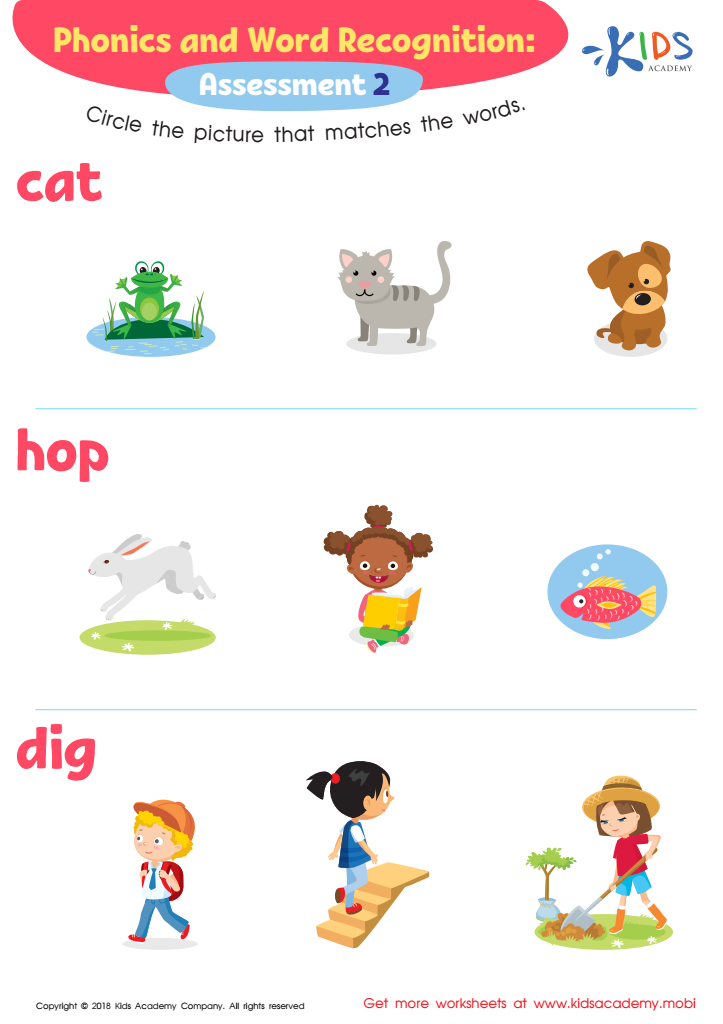

Phonological Awareness: Assessment 2 ELA Worksheet
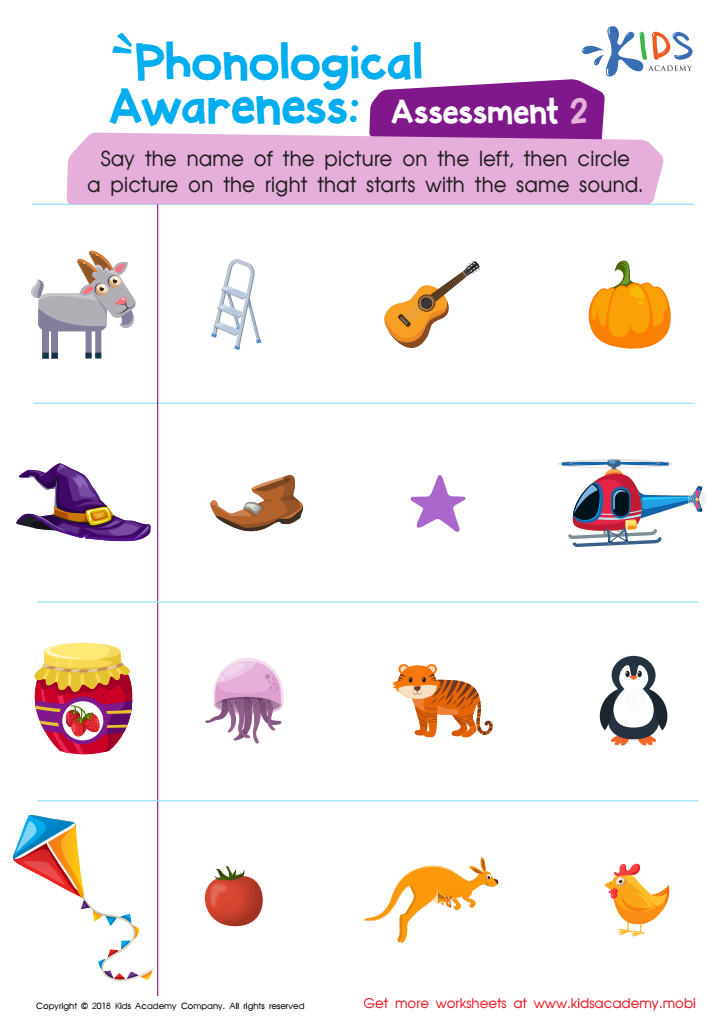

Phonological Awareness: Assessment 2 Worksheet
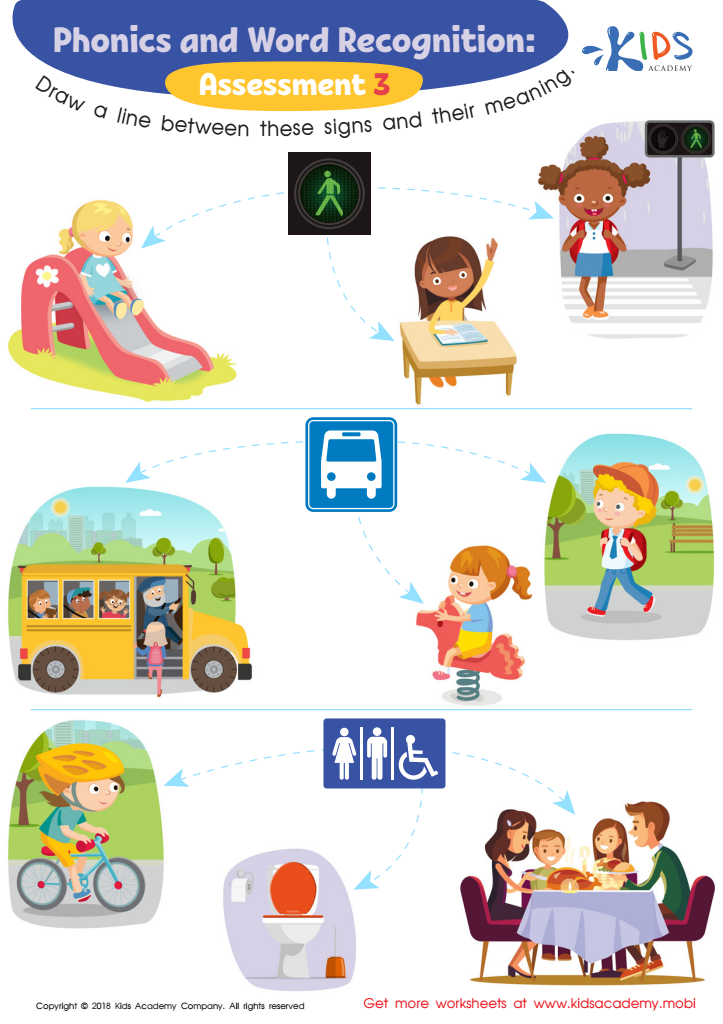

Phonological Awareness: Assessment 3 ELA Worksheet
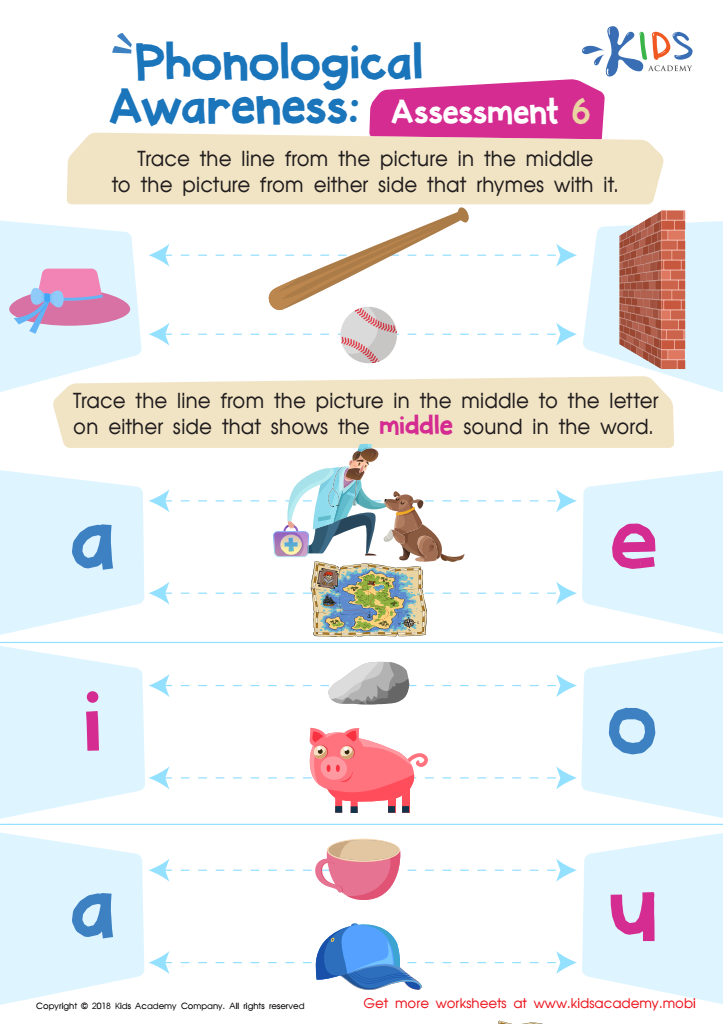

Phonological Awareness: Assessment 6 Worksheet
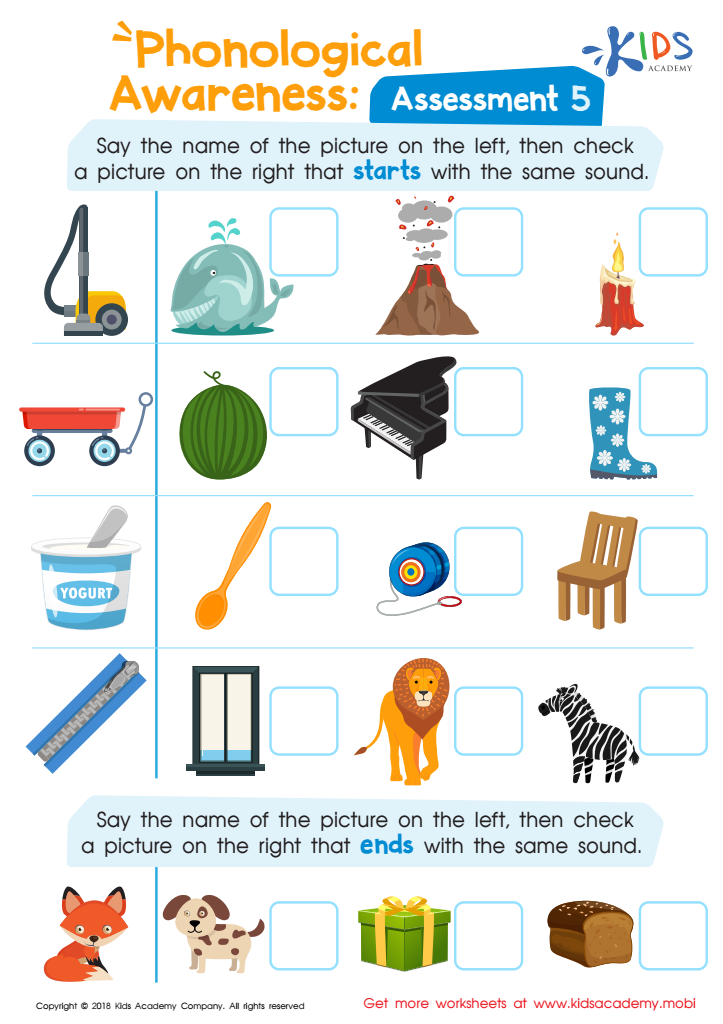

Phonological Awareness: Assessment 5 Worksheet
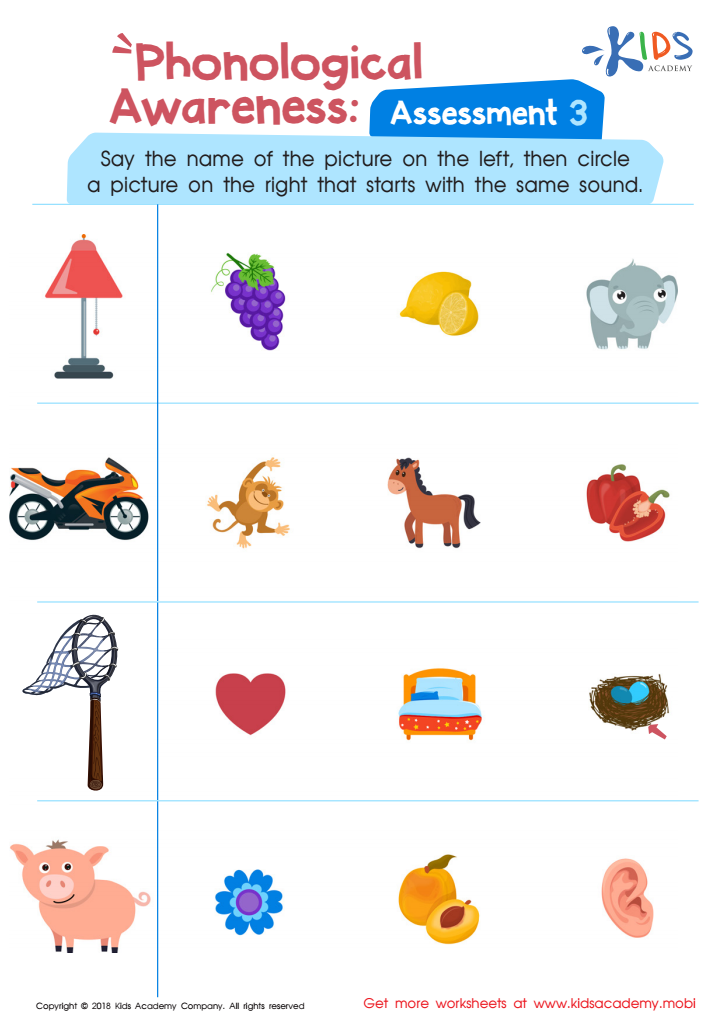

Phonological Awareness: Assessment 3 Worksheet
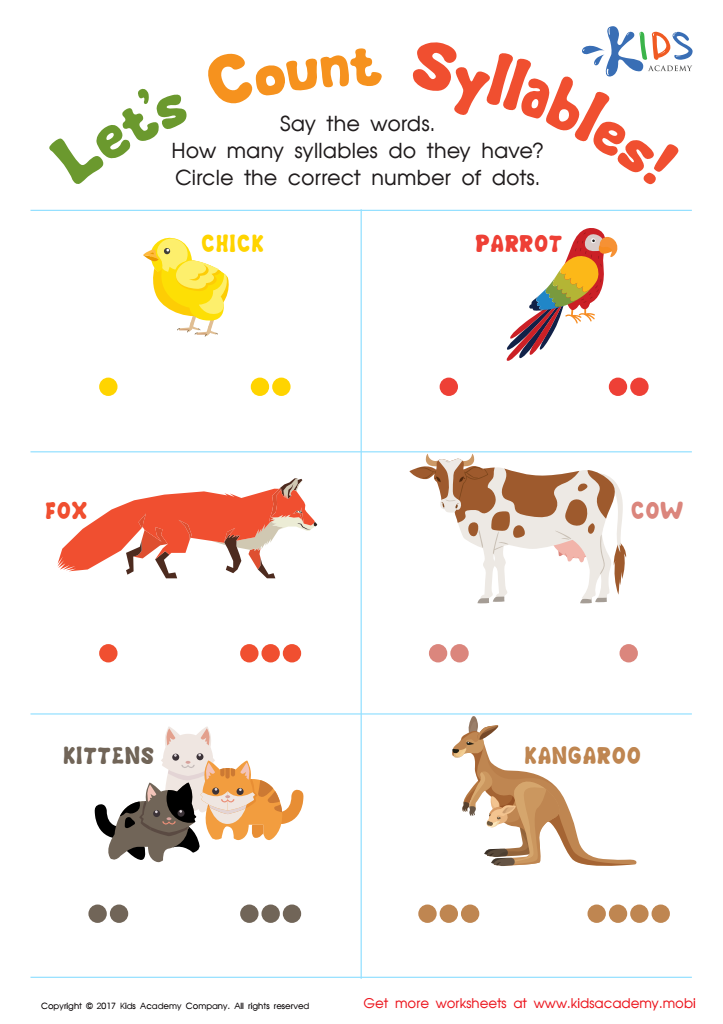

Lets Count Syllables Worksheet
Phonological awareness is a critical foundation for reading and language development, making it essential for parents and teachers to prioritize it, especially for 3-year-olds. At this age, children begin to notice and manipulate the sounds in spoken language, an important precursor to reading. Developing phonological awareness supports skills like recognizing rhythm, rhyme, and syllable segmentation, which can enhance listening and speaking abilities.
Engaging in phonological activities prepares young learners for phonics instruction, enabling them to connect sounds to letters as they approach reading readiness. This early skill set paves the way for smooth transitions into more advanced literacy tasks, reducing future reading difficulties. Additionally, fostering phonological awareness can boost confidence and enthusiasm for learning, setting a positive tone for future academic experiences.
Moreover, strong phonological awareness is linked to better reading comprehension, vocabulary expansion, and overall academic success. When parents and teachers collaborate to support these skills through playful, interactive activities, they create a rich language environment that nurtures lifelong learning. Consequently, investing time in teaching phonological awareness profoundly impacts a child's educational journey, emphasizing the importance of this foundational skill at such an early stage.

 Assign to My Students
Assign to My Students











